afterLoad (456.16KB) (3ms)
afterInitialise (1.27MB) (47.83ms)
afterRoute (840.53KB) (22.6ms)
beforeRenderComponent com_tags (20.62KB) (2.33ms)
afterRenderComponent com_tags (1.3MB) (108ms)
afterDispatch (31.8KB) (9.74ms)
beforeRenderRawModule mod_articles_category (READ MORE...) (439.86KB) (35.2ms)
Before Access::preloadComponents (all components) (50.9KB) (3.53ms)
After Access::preloadComponents (all components) (103.05KB) (2.38ms)
Before Access::getAssetRules (id:8 name:com_content) (840B) (23μs)
After Access::getAssetRules (id:8 name:com_content) (7.05KB) (54μs)
afterRenderRawModule mod_articles_category (READ MORE...) (6.05KB) (244ms)
beforeRenderRawModule mod_custom (BOOST YOUR IMMUNE DEFENSE) (6.45KB) (40μs)
afterRenderRawModule mod_custom (BOOST YOUR IMMUNE DEFENSE) (3.8KB) (236μs)
beforeRenderRawModule mod_tags_popular (Search) (2.36KB) (15μs)
afterRenderRawModule mod_tags_popular (Search) (42.19KB) (236ms)
beforeRenderRawModule mod_custom (Get additionel and more detailed knowledge ) (816B) (44μs)
afterRenderRawModule mod_custom (Get additionel and more detailed knowledge ) (1.55KB) (75μs)
beforeRenderRawModule mod_custom (Overview of vitamins, minerals, and essential fatty acids) (768B) (11μs)
afterRenderRawModule mod_custom (Overview of vitamins, minerals, and essential fatty acids) (960B) (24μs)
beforeRenderRawModule mod_custom (Q10 goes by many names) (608B) (10μs)
afterRenderRawModule mod_custom (Q10 goes by many names) (928B) (19μs)
beforeRenderRawModule mod_custom (Check this before you buy a Q10 product) (752B) (9μs)
afterRenderRawModule mod_custom (Check this before you buy a Q10 product) (944B) (19μs)
beforeRenderRawModule mod_custom (Are you taking supplements) (736B) (9μs)
afterRenderRawModule mod_custom (Are you taking supplements) (1.03KB) (18μs)
beforeRenderRawModule mod_custom (Weight loss that works) (736B) (9μs)
afterRenderRawModule mod_custom (Weight loss that works) (1.03KB) (18μs)
beforeRenderRawModule mod_custom (Antiaging) (720B) (9μs)
afterRenderRawModule mod_custom (Antiaging) (912B) (17μs)
beforeRenderRawModule mod_menu (Are you getting enough vitamins and minerals?) (2.5KB) (12μs)
afterRenderRawModule mod_menu (Are you getting enough vitamins and minerals?) (22.39KB) (1.73ms)
beforeRenderRawModule mod_menu (The key to increased well-being) (736B) (25μs)
afterRenderRawModule mod_menu (The key to increased well-being) (17.83KB) (267μs)
beforeRenderRawModule mod_menu (Did you know.....) (720B) (15μs)
afterRenderRawModule mod_menu (Did you know.....) (25.52KB) (739μs)
beforeRenderRawModule mod_custom (Useful Links) (1.06KB) (17μs)
afterRenderRawModule mod_custom (Useful Links) (1.02KB) (37μs)
beforeRenderRawModule mod_custom (Chronic fatigue tied Alan to his bed but Q10 capsules saved him:) (244.28KB) (5.1ms)
afterRenderRawModule mod_custom (Chronic fatigue tied Alan to his bed but Q10 capsules saved him:) (1.06KB) (49μs)
beforeRenderModule mod_custom (Chronic fatigue tied Alan to his bed but Q10 capsules saved him:) (768B) (5μs)
afterRenderModule mod_custom (Chronic fatigue tied Alan to his bed but Q10 capsules saved him:) (1.3KB) (72μs)
beforeRenderRawModule mod_custom (Cholesterol-lowering without side effects:) (368B) (13μs)
afterRenderRawModule mod_custom (Cholesterol-lowering without side effects:) (1.06KB) (22μs)
beforeRenderModule mod_custom (Cholesterol-lowering without side effects:) (752B) (2μs)
afterRenderModule mod_custom (Cholesterol-lowering without side effects:) (1.28KB) (31μs)
beforeRenderModule mod_articles_category (READ MORE...) (20.82KB) (1.43ms)
afterRenderModule mod_articles_category (READ MORE...) (1.25KB) (53μs)
beforeRenderModule mod_custom (BOOST YOUR IMMUNE DEFENSE) (6.81KB) (15μs)
afterRenderModule mod_custom (BOOST YOUR IMMUNE DEFENSE) (1.28KB) (26μs)
beforeRenderModule mod_tags_popular (Search) (1.98KB) (12μs)
afterRenderModule mod_tags_popular (Search) (1.27KB) (23μs)
beforeRenderModule mod_custom (Get additionel and more detailed knowledge ) (1.17KB) (10μs)
afterRenderModule mod_custom (Get additionel and more detailed knowledge ) (1.3KB) (22μs)
beforeRenderModule mod_custom (Overview of vitamins, minerals, and essential fatty acids) (384B) (9μs)
afterRenderModule mod_custom (Overview of vitamins, minerals, and essential fatty acids) (1.31KB) (20μs)
beforeRenderModule mod_custom (Q10 goes by many names) (208B) (9μs)
afterRenderModule mod_custom (Q10 goes by many names) (1.27KB) (21μs)
beforeRenderModule mod_custom (Check this before you buy a Q10 product) (352B) (9μs)
afterRenderModule mod_custom (Check this before you buy a Q10 product) (1.28KB) (21μs)
beforeRenderModule mod_custom (Are you taking supplements) (352B) (8μs)
afterRenderModule mod_custom (Are you taking supplements) (1.28KB) (21μs)
beforeRenderModule mod_custom (Weight loss that works) (336B) (9μs)
afterRenderModule mod_custom (Weight loss that works) (1.27KB) (20μs)
beforeRenderModule mod_custom (Antiaging) (336B) (9μs)
afterRenderModule mod_custom (Antiaging) (3.77KB) (21μs)
beforeRenderModule mod_menu (Are you getting enough vitamins and minerals?) (2.13KB) (10μs)
afterRenderModule mod_menu (Are you getting enough vitamins and minerals?) (1.3KB) (22μs)
beforeRenderModule mod_menu (The key to increased well-being) (352B) (10μs)
afterRenderModule mod_menu (The key to increased well-being) (1.28KB) (20μs)
beforeRenderModule mod_menu (Did you know.....) (336B) (9μs)
afterRenderModule mod_menu (Did you know.....) (1.27KB) (21μs)
beforeRenderModule mod_custom (Useful Links) (1.44KB) (8μs)
afterRenderModule mod_custom (Useful Links) (1.27KB) (21μs)
beforeRenderRawModule mod_menu (Main Menu - English) (29.14KB) (1.76ms)
afterRenderRawModule mod_menu (Main Menu - English) (186.95KB) (3.65ms)
beforeRenderModule mod_menu (Main Menu - English) (720B) (6μs)
afterRenderModule mod_menu (Main Menu - English) (4.86KB) (72μs)
beforeRenderRawModule mod_languages (Sprogskift) (3.94KB) (22μs)
afterRenderRawModule mod_languages (Sprogskift) (28.05KB) (3.24ms)
beforeRenderModule mod_languages (Sprogskift) (720B) (7μs)
afterRenderModule mod_languages (Sprogskift) (5.31KB) (26μs)
beforeRenderRawModule mod_finder () (6.34KB) (14μs)
afterRenderRawModule mod_finder () (128.59KB) (5.19ms)
beforeRenderModule mod_finder () (704B) (6μs)
afterRenderModule mod_finder () (3.29KB) (40μs)
beforeRenderRawModule mod_custom () (6.62KB) (157μs)
afterRenderRawModule mod_custom () (22.64KB) (5.36ms)
beforeRenderModule mod_custom () (704B) (9μs)
afterRenderModule mod_custom () (1.23KB) (64μs)
beforeRenderRawModule mod_menu (Main Menu - English) (5.07KB) (130μs)
afterRenderRawModule mod_menu (Main Menu - English) (6.3KB) (810μs)
beforeRenderModule mod_menu (Main Menu - English) (720B) (4μs)
afterRenderModule mod_menu (Main Menu - English) (1.25KB) (49μs)
beforeRenderRawModule mod_languages (Sprogskift Mobil) (912B) (17μs)
afterRenderRawModule mod_languages (Sprogskift Mobil) (3.89KB) (1.76ms)
beforeRenderModule mod_languages (Sprogskift Mobil) (720B) (6μs)
afterRenderModule mod_languages (Sprogskift Mobil) (1.27KB) (39μs)
beforeRenderRawModule mod_finder () (2.3KB) (13μs)
afterRenderRawModule mod_finder () (6.29KB) (2.4ms)
beforeRenderModule mod_finder () (704B) (7μs)
afterRenderModule mod_finder () (1.23KB) (67μs)
beforeRenderRawModule mod_custom () (8.66KB) (217μs)
afterRenderRawModule mod_custom () (904B) (197μs)
beforeRenderModule mod_custom () (704B) (3μs)
afterRenderModule mod_custom () (2.43KB) (30μs)
beforeRenderRawModule mod_custom () (688B) (88μs)
afterRenderRawModule mod_custom () (896B) (99μs)
beforeRenderModule mod_custom () (704B) (3μs)
afterRenderModule mod_custom () (2.71KB) (22μs)
afterRender (260.1KB) (33.66ms)
| 1 x afterRenderRawModule mod_articles_category (READ MORE...) (6.05KB) (31.06%) | 243.57ms |
| 1 x afterRenderRawModule mod_tags_popular (Search) (42.19KB) (30.07%) | 235.83ms |
| 1 x afterRenderComponent com_tags (1.3MB) (13.72%) | 107.58ms |
| 1 x afterInitialise (1.27MB) (6.1%) | 47.83ms |
| 1 x beforeRenderRawModule mod_articles_category (READ MORE...) (439.86KB) (4.49%) | 35.20ms |
| 1 x afterRender (260.1KB) (4.29%) | 33.66ms |
| 1 x afterRoute (840.53KB) (2.88%) | 22.60ms |
| 1 x afterDispatch (31.8KB) (1.24%) | 9.74ms |
| 1 x afterRenderRawModule mod_custom () (22.64KB) (0.68%) | 5.36ms |
| 1 x afterRenderRawModule mod_finder () (128.59KB) (0.66%) | 5.19ms |
| 1 x beforeRenderRawModule mod_custom (Chronic fatigue tied Alan to his bed but Q10 capsules saved him:) (244.28KB) (0.65%) | 5.10ms |
| 1 x afterRenderRawModule mod_menu (Main Menu - English) (186.95KB) (0.47%) | 3.65ms |
| 1 x Before Access::preloadComponents (all components) (50.9KB) (0.45%) | 3.53ms |
| 1 x afterRenderRawModule mod_languages (Sprogskift) (28.05KB) (0.41%) | 3.24ms |
| 1 x afterLoad (456.16KB) (0.38%) | 3.00ms |
| 1 x afterRenderRawModule mod_finder () (6.29KB) (0.31%) | 2.40ms |
| 1 x After Access::preloadComponents (all components) (103.05KB) (0.3%) | 2.38ms |
| 1 x beforeRenderComponent com_tags (20.62KB) (0.3%) | 2.33ms |
| 1 x afterRenderRawModule mod_languages (Sprogskift Mobil) (3.89KB) (0.22%) | 1.76ms |
| 1 x beforeRenderRawModule mod_menu (Main Menu - English) (29.14KB) (0.22%) | 1.76ms |
| 1 x afterRenderRawModule mod_menu (Are you getting enough vitamins and minerals?) (22.39KB) (0.22%) | 1.73ms |
| 1 x beforeRenderModule mod_articles_category (READ MORE...) (20.82KB) (0.18%) | 1.43ms |
| 1 x afterRenderRawModule mod_menu (Main Menu - English) (6.3KB) (0.1%) | 810μs |
| 1 x afterRenderRawModule mod_menu (Did you know.....) (25.52KB) (0.09%) | 739μs |
| 1 x afterRenderRawModule mod_menu (The key to increased well-being) (17.83KB) (0.03%) | 267μs |
| 1 x afterRenderRawModule mod_custom (BOOST YOUR IMMUNE DEFENSE) (3.8KB) (0.03%) | 236μs |
| 1 x beforeRenderRawModule mod_custom () (8.66KB) (0.03%) | 217μs |
| 1 x afterRenderRawModule mod_custom () (904B) (0.03%) | 197μs |
| 1 x beforeRenderRawModule mod_custom () (6.62KB) (0.02%) | 157μs |
| 1 x beforeRenderRawModule mod_menu (Main Menu - English) (5.07KB) (0.02%) | 130μs |
| 1 x afterRenderRawModule mod_custom () (896B) (0.01%) | 99μs |
| 1 x beforeRenderRawModule mod_custom () (688B) (0.01%) | 88μs |
| 1 x afterRenderRawModule mod_custom (Get additionel and more detailed knowledge ) (1.55KB) (0.01%) | 75μs |
| 1 x afterRenderModule mod_custom (Chronic fatigue tied Alan to his bed but Q10 capsules saved him:) (1.3KB) (0.01%) | 72μs |
| 1 x afterRenderModule mod_menu (Main Menu - English) (4.86KB) (0.01%) | 72μs |
| 1 x afterRenderModule mod_finder () (1.23KB) (0.01%) | 67μs |
| 1 x afterRenderModule mod_custom () (1.23KB) (0.01%) | 64μs |
| 1 x After Access::getAssetRules (id:8 name:com_content) (7.05KB) (0.01%) | 54μs |
| 1 x afterRenderModule mod_articles_category (READ MORE...) (1.25KB) (0.01%) | 53μs |
| 1 x afterRenderRawModule mod_custom (Chronic fatigue tied Alan to his bed but Q10 capsules saved him:) (1.06KB) (0.01%) | 49μs |
| 1 x afterRenderModule mod_menu (Main Menu - English) (1.25KB) (0.01%) | 49μs |
| 1 x beforeRenderRawModule mod_custom (Get additionel and more detailed knowledge ) (816B) (0.01%) | 44μs |
| 1 x beforeRenderRawModule mod_custom (BOOST YOUR IMMUNE DEFENSE) (6.45KB) (0.01%) | 40μs |
| 1 x afterRenderModule mod_finder () (3.29KB) (0.01%) | 40μs |
| 1 x afterRenderModule mod_languages (Sprogskift Mobil) (1.27KB) (0%) | 39μs |
| 1 x afterRenderRawModule mod_custom (Useful Links) (1.02KB) (0%) | 37μs |
| 1 x afterRenderModule mod_custom (Cholesterol-lowering without side effects:) (1.28KB) (0%) | 31μs |
| 1 x afterRenderModule mod_custom () (2.43KB) (0%) | 30μs |
| 1 x afterRenderModule mod_custom (BOOST YOUR IMMUNE DEFENSE) (1.28KB) (0%) | 26μs |
| 1 x afterRenderModule mod_languages (Sprogskift) (5.31KB) (0%) | 26μs |
| 1 x beforeRenderRawModule mod_menu (The key to increased well-being) (736B) (0%) | 25μs |
| 1 x afterRenderRawModule mod_custom (Overview of vitamins, minerals, and essential fatty acids) (960B) (0%) | 24μs |
| 1 x Before Access::getAssetRules (id:8 name:com_content) (840B) (0%) | 23μs |
| 1 x afterRenderModule mod_tags_popular (Search) (1.27KB) (0%) | 23μs |
| 1 x afterRenderRawModule mod_custom (Cholesterol-lowering without side effects:) (1.06KB) (0%) | 22μs |
| 1 x afterRenderModule mod_custom (Get additionel and more detailed knowledge ) (1.3KB) (0%) | 22μs |
| 1 x afterRenderModule mod_menu (Are you getting enough vitamins and minerals?) (1.3KB) (0%) | 22μs |
| 1 x beforeRenderRawModule mod_languages (Sprogskift) (3.94KB) (0%) | 22μs |
| 1 x afterRenderModule mod_custom () (2.71KB) (0%) | 22μs |
| 1 x afterRenderModule mod_custom (Q10 goes by many names) (1.27KB) (0%) | 21μs |
| 1 x afterRenderModule mod_custom (Check this before you buy a Q10 product) (1.28KB) (0%) | 21μs |
| 1 x afterRenderModule mod_custom (Are you taking supplements) (1.28KB) (0%) | 21μs |
| 1 x afterRenderModule mod_custom (Antiaging) (3.77KB) (0%) | 21μs |
| 1 x afterRenderModule mod_menu (Did you know.....) (1.27KB) (0%) | 21μs |
| 1 x afterRenderModule mod_custom (Useful Links) (1.27KB) (0%) | 21μs |
| 1 x afterRenderModule mod_custom (Overview of vitamins, minerals, and essential fatty acids) (1.31KB) (0%) | 20μs |
| 1 x afterRenderModule mod_custom (Weight loss that works) (1.27KB) (0%) | 20μs |
| 1 x afterRenderModule mod_menu (The key to increased well-being) (1.28KB) (0%) | 20μs |
| 1 x afterRenderRawModule mod_custom (Q10 goes by many names) (928B) (0%) | 19μs |
| 1 x afterRenderRawModule mod_custom (Check this before you buy a Q10 product) (944B) (0%) | 19μs |
| 1 x afterRenderRawModule mod_custom (Weight loss that works) (1.03KB) (0%) | 18μs |
| 1 x afterRenderRawModule mod_custom (Are you taking supplements) (1.03KB) (0%) | 18μs |
| 1 x afterRenderRawModule mod_custom (Antiaging) (912B) (0%) | 17μs |
| 1 x beforeRenderRawModule mod_custom (Useful Links) (1.06KB) (0%) | 17μs |
| 1 x beforeRenderRawModule mod_languages (Sprogskift Mobil) (912B) (0%) | 17μs |
| 1 x beforeRenderModule mod_custom (BOOST YOUR IMMUNE DEFENSE) (6.81KB) (0%) | 15μs |
| 3 x beforeRenderModule mod_custom () (704B) (0%) | 15μs |
| 1 x beforeRenderRawModule mod_tags_popular (Search) (2.36KB) (0%) | 15μs |
| 1 x beforeRenderRawModule mod_menu (Did you know.....) (720B) (0%) | 15μs |
| 1 x beforeRenderRawModule mod_finder () (6.34KB) (0%) | 14μs |
| 2 x beforeRenderModule mod_finder () (704B) (0%) | 13μs |
| 1 x beforeRenderRawModule mod_finder () (2.3KB) (0%) | 13μs |
| 1 x beforeRenderRawModule mod_custom (Cholesterol-lowering without side effects:) (368B) (0%) | 13μs |
| 1 x beforeRenderModule mod_tags_popular (Search) (1.98KB) (0%) | 12μs |
| 1 x beforeRenderRawModule mod_menu (Are you getting enough vitamins and minerals?) (2.5KB) (0%) | 12μs |
| 1 x beforeRenderRawModule mod_custom (Overview of vitamins, minerals, and essential fatty acids) (768B) (0%) | 11μs |
| 1 x beforeRenderRawModule mod_custom (Q10 goes by many names) (608B) (0%) | 10μs |
| 1 x beforeRenderModule mod_custom (Get additionel and more detailed knowledge ) (1.17KB) (0%) | 10μs |
| 1 x beforeRenderModule mod_menu (Are you getting enough vitamins and minerals?) (2.13KB) (0%) | 10μs |
| 1 x beforeRenderModule mod_menu (The key to increased well-being) (352B) (0%) | 10μs |
| 2 x beforeRenderModule mod_menu (Main Menu - English) (720B) (0%) | 10μs |
| 1 x beforeRenderRawModule mod_custom (Check this before you buy a Q10 product) (752B) (0%) | 9μs |
| 1 x beforeRenderRawModule mod_custom (Are you taking supplements) (736B) (0%) | 9μs |
| 1 x beforeRenderRawModule mod_custom (Weight loss that works) (736B) (0%) | 9μs |
| 1 x beforeRenderModule mod_custom (Overview of vitamins, minerals, and essential fatty acids) (384B) (0%) | 9μs |
| 1 x beforeRenderModule mod_custom (Q10 goes by many names) (208B) (0%) | 9μs |
| 1 x beforeRenderModule mod_custom (Check this before you buy a Q10 product) (352B) (0%) | 9μs |
| 1 x beforeRenderModule mod_custom (Weight loss that works) (336B) (0%) | 9μs |
| 1 x beforeRenderModule mod_custom (Antiaging) (336B) (0%) | 9μs |
| 1 x beforeRenderModule mod_menu (Did you know.....) (336B) (0%) | 9μs |
| 1 x beforeRenderRawModule mod_custom (Antiaging) (720B) (0%) | 9μs |
| 1 x beforeRenderModule mod_custom (Are you taking supplements) (352B) (0%) | 8μs |
| 1 x beforeRenderModule mod_custom (Useful Links) (1.44KB) (0%) | 8μs |
| 1 x beforeRenderModule mod_languages (Sprogskift) (720B) (0%) | 7μs |
| 1 x beforeRenderModule mod_languages (Sprogskift Mobil) (720B) (0%) | 6μs |
| 1 x beforeRenderModule mod_custom (Chronic fatigue tied Alan to his bed but Q10 capsules saved him:) (768B) (0%) | 5μs |
| 1 x beforeRenderModule mod_custom (Cholesterol-lowering without side effects:) (752B) (0%) | 2μs |
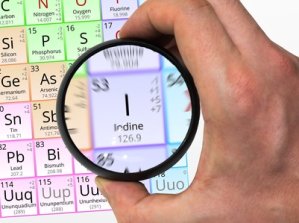 It appears so. Iodine is an essential trace element that is vital for metabolism and estrogen balance. Iodine also helps the body get rid of environmental toxins. In fact, exposure to these toxins increases our need for iodine, and many experts believe that the official recommendations for iodine are too low.
It appears so. Iodine is an essential trace element that is vital for metabolism and estrogen balance. Iodine also helps the body get rid of environmental toxins. In fact, exposure to these toxins increases our need for iodine, and many experts believe that the official recommendations for iodine are too low.







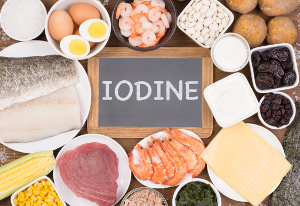 The Russian invasion of Ukraine has increased the fear of nuclear warfare or radioactive leaks from local nuclear power plants. For that reason, many people have purchased iodine tablets to protect themselves from radioactive contamination. Being relatively close to a radioactive leak creates a sudden need for very large intake of
The Russian invasion of Ukraine has increased the fear of nuclear warfare or radioactive leaks from local nuclear power plants. For that reason, many people have purchased iodine tablets to protect themselves from radioactive contamination. Being relatively close to a radioactive leak creates a sudden need for very large intake of  We humans are exposed to many toxic fluoride compounds from toothpaste, mouth rinses, tap water and mineral water, Teflon pans, cookie sheets, rain clothes, waterproofing agents etc. Fluoride poisoning may increase your risk of thyroid disorders, breast cancer, kidney diseases, ADHD, and birth defects. In addition, the need for
We humans are exposed to many toxic fluoride compounds from toothpaste, mouth rinses, tap water and mineral water, Teflon pans, cookie sheets, rain clothes, waterproofing agents etc. Fluoride poisoning may increase your risk of thyroid disorders, breast cancer, kidney diseases, ADHD, and birth defects. In addition, the need for 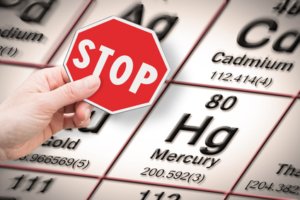 The most harmful heavy metals are mercury, cadmium, lead, nickel, and cobber, but aluminum, fluoride, iron, and calcium can also be toxic. Poisoning with heavy metals and minerals blocks other minerals such as selenium, iodine, magnesium, and zinc, all of which support numerous essential enzyme processes. At the same time, if you lack these important minerals, heavy metals are able to cause unhindered damage and increase your risk of impaired immunity, impaired fertility, autoimmune diseases, thyroid diseases, brain damage, neurological diseases, depression, hypersensitivity, etc. Chronic heavy metal toxicity is an overlooked problem, but in this article, you can read more about the subject and find out how to deal with it.
The most harmful heavy metals are mercury, cadmium, lead, nickel, and cobber, but aluminum, fluoride, iron, and calcium can also be toxic. Poisoning with heavy metals and minerals blocks other minerals such as selenium, iodine, magnesium, and zinc, all of which support numerous essential enzyme processes. At the same time, if you lack these important minerals, heavy metals are able to cause unhindered damage and increase your risk of impaired immunity, impaired fertility, autoimmune diseases, thyroid diseases, brain damage, neurological diseases, depression, hypersensitivity, etc. Chronic heavy metal toxicity is an overlooked problem, but in this article, you can read more about the subject and find out how to deal with it.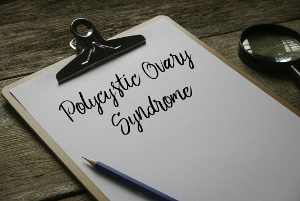 PCOS – or polycystic ovary syndrome – is a problem that occurs in 5-10 percent of women of childbearing age. It is the most common cause of involuntary infertility. Related symptoms include tiredness, hirsutism (male hair growth), acne, and irregular menstrual periods. PCOS is often linked to instable blood sugar, increased risk of insulin resistance, overweight, cardiovascular disease, type 2 diabetes, and autoimmune diseases like Hashimoto’s thyroiditis that causes slow metabolism. Diet and exercise mean a lot in terms of prevention and treatment. The same is the case with different vitamins and minerals. We will be looking closer at B vitamins, vitamin D, vitamin E, and coenzyme Q10, plus magnesium, zinc, selenium, chromium, iodine, and fish oil. We will also be looking at how relevant supplements, according to science, can help control blood sugar levels and the hormone balance.
PCOS – or polycystic ovary syndrome – is a problem that occurs in 5-10 percent of women of childbearing age. It is the most common cause of involuntary infertility. Related symptoms include tiredness, hirsutism (male hair growth), acne, and irregular menstrual periods. PCOS is often linked to instable blood sugar, increased risk of insulin resistance, overweight, cardiovascular disease, type 2 diabetes, and autoimmune diseases like Hashimoto’s thyroiditis that causes slow metabolism. Diet and exercise mean a lot in terms of prevention and treatment. The same is the case with different vitamins and minerals. We will be looking closer at B vitamins, vitamin D, vitamin E, and coenzyme Q10, plus magnesium, zinc, selenium, chromium, iodine, and fish oil. We will also be looking at how relevant supplements, according to science, can help control blood sugar levels and the hormone balance.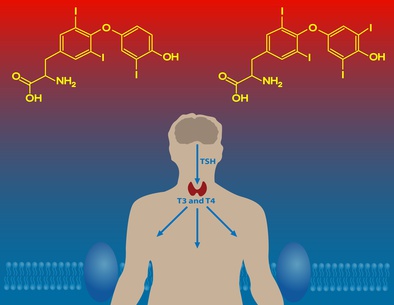
 "After about one week of taking the Q10 supplement I could feel a huge difference," says 23-year old Alan Piccini, who has been suffering from extreme fatigue and muscle aches ever since he was a child.
"After about one week of taking the Q10 supplement I could feel a huge difference," says 23-year old Alan Piccini, who has been suffering from extreme fatigue and muscle aches ever since he was a child. “Taking capsules with co-enzyme Q10 has freed me of the severe side effects of my cholesterol lowering medicine,” Mrs Franken explains.
“Taking capsules with co-enzyme Q10 has freed me of the severe side effects of my cholesterol lowering medicine,” Mrs Franken explains.